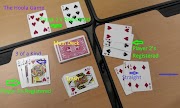I was asked to write another newspaper article for my university, luckily this one was a very short one.
When moving to a different country you expect to encounter many cultural differences in the way they eat, dress, make friends, but what about talking on the phone? I remember when I was still new to this country one of my Korean friends called me,
Me: Hello?
Korean Friend: Ashley? Pick you up 4 o'clock?
Me: Yup! See you then! =D
Korean Friend: *Ends call*
Me: Did she just hang up on me?!?!
I'm not sure about other Western cultures but in America, hanging up the phone before saying goodbye is completely disrespectful. You only do it when you are very angry at the person on the other line. Very similar to when Koreans take out their phone battery, in a fit of rage, after talking to someone. So when this first happened to me I freaked out a bit. Did I do something wrong? Why is she mad?! Later I learned this is normal in Korean culture and the only time you are suppose to say goodbye on the phone is when talking to a grandparent or someone we requires a very high amount of respect.
So next time you are on the phone with a foreigner remember this cultural difference and don't forget to say goodbye. You don't want them to think you are angry with them do you?
 |
| Also, when you talk on the phone in Korea you levitate! Photo by my co-blogger Young-gun |



1 Comments
Ahh, I remember doing that too. Other Americans asked me why I hung up. I just said "Because we're about to meet and there wasn't anything else to say on the phone". But I still felt somewhat uncomfortable doing that with foreigners, so I just got use to saying hi and bye more often.
ReplyDeleteKorean also say 'Thanks' and 'Sorry' lot less than any English speaking people. I'm thinking it's just harder to pronounce it in Korean and takes more effort to say them, which made it more meaningful each time they say it. It takes minimum of 2 up to 5 completely different syllables to say either of them. 2 to 7 in case of saying 'Bye'.